
"where the grass whispers"
venue museu júlio dinis | ovar 2020
woodcut matrix with soundscape1,25cm x 1,25cm (Un.)
portuguese state contemporary art collection
photo by joão pinto


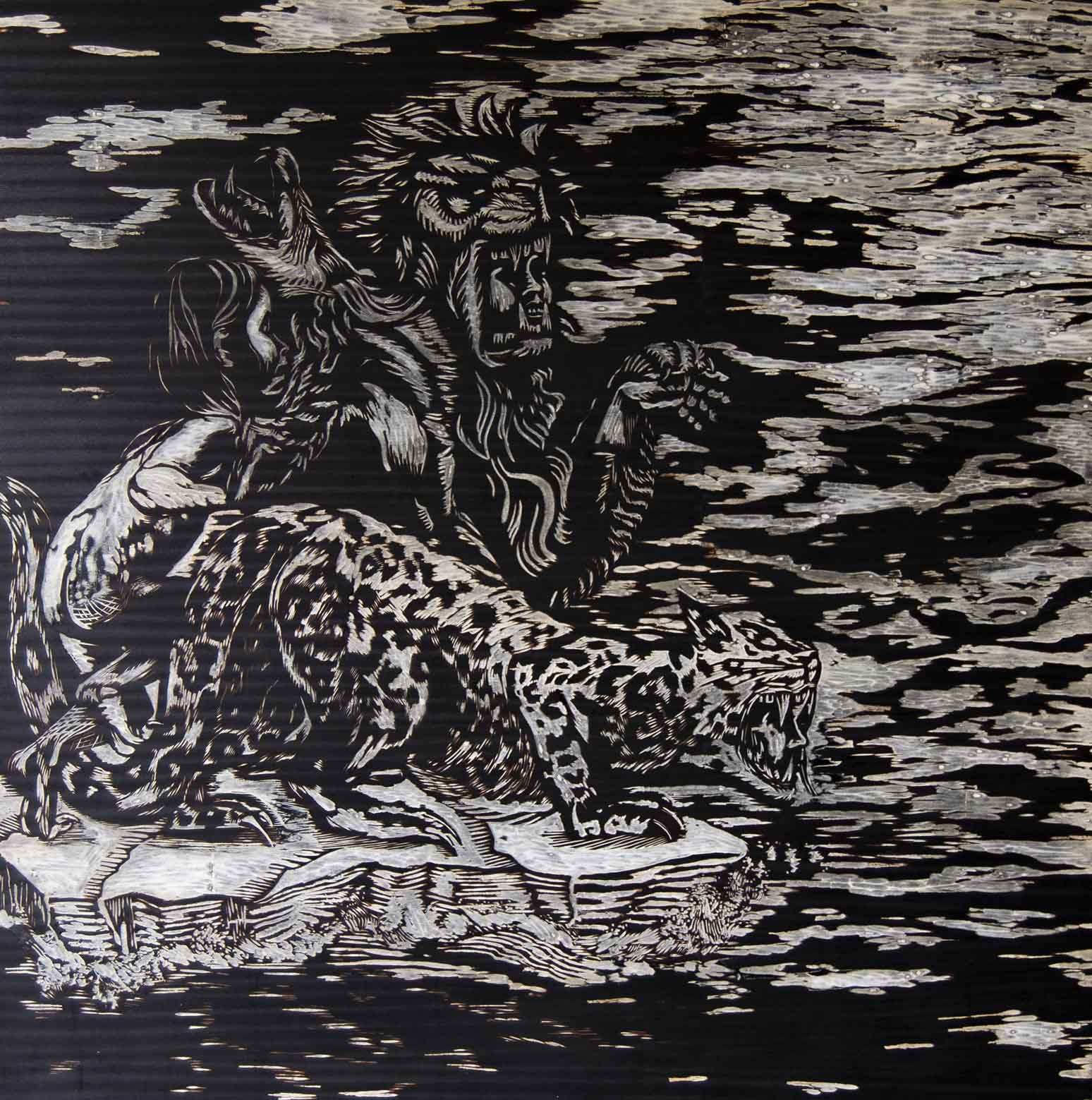



“we, mud daughters”
details woodcut matrix and prints
1,25cm x 1,25cm (Un.)
photos by joão pinto and marta ribeiro




“beasts and furies”
sculpture of woodcuts, concrete and threaded rod
176cm x 26cm
collection centro de arte de ovar
photos by joão pinto and marta ribeiro



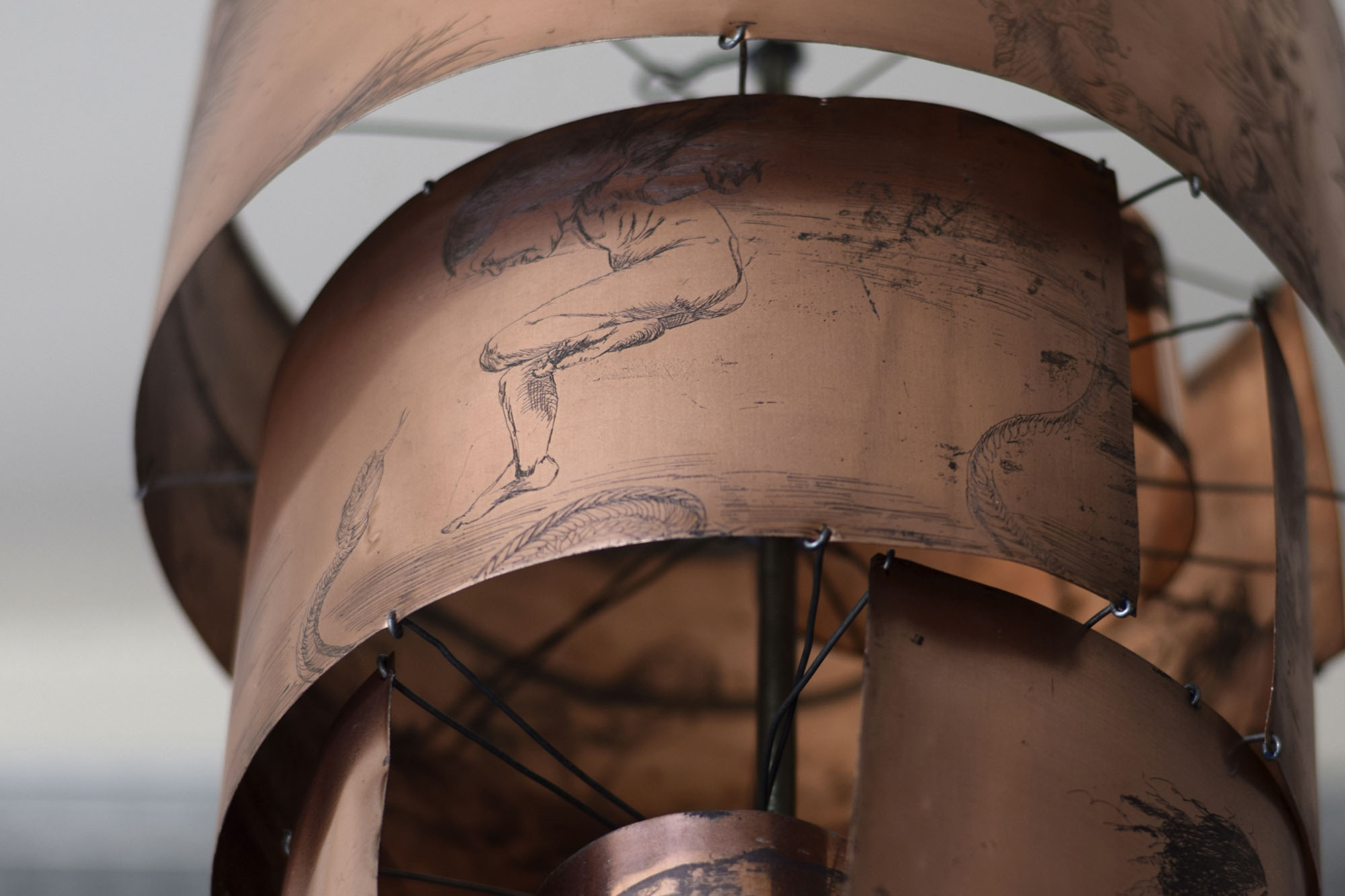

“journey to the center of the earth”
installation/sculpture: etched matrix of copper, zincelectric motor with soundscape
100cm x 32cm
photos by marta ribeiro
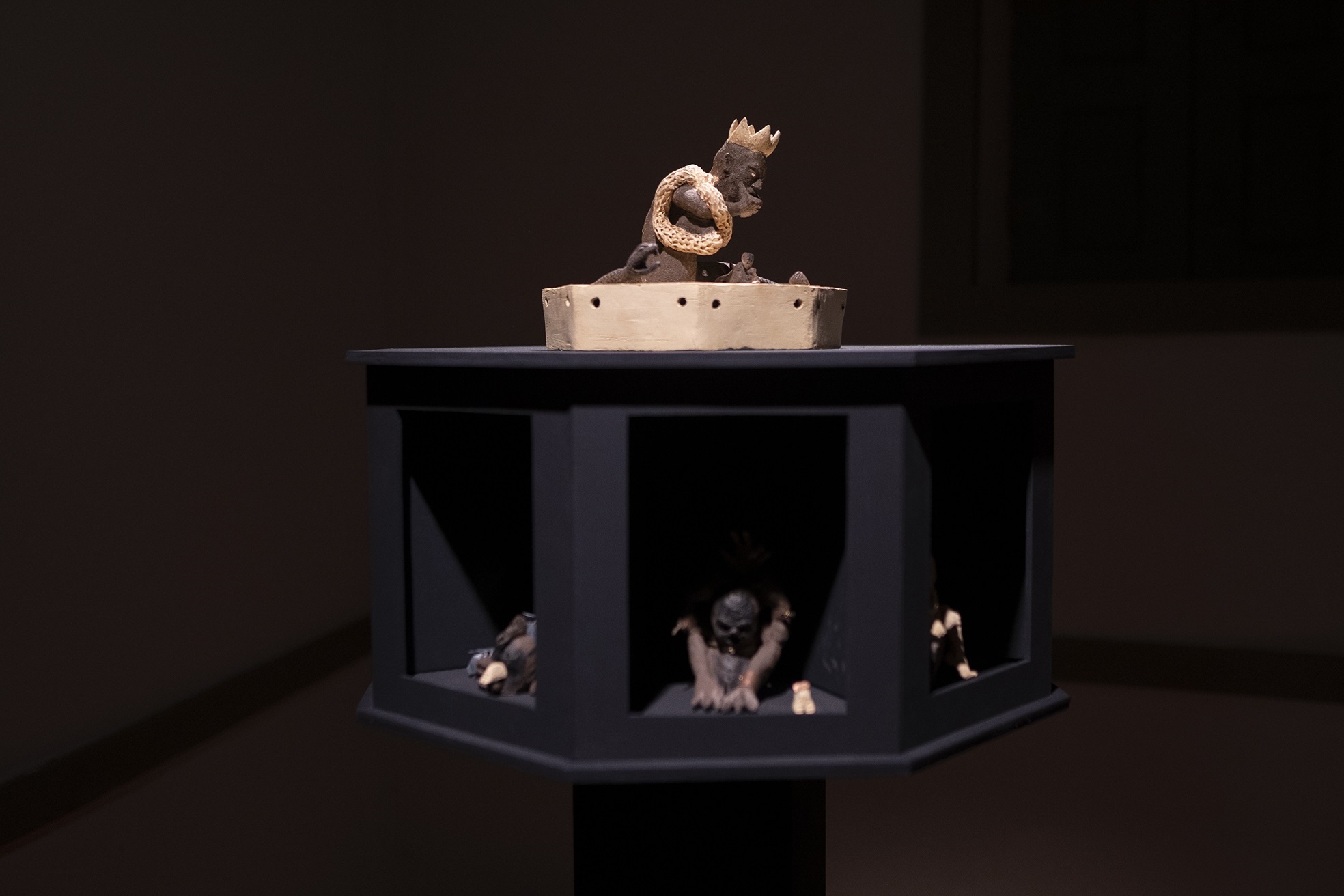

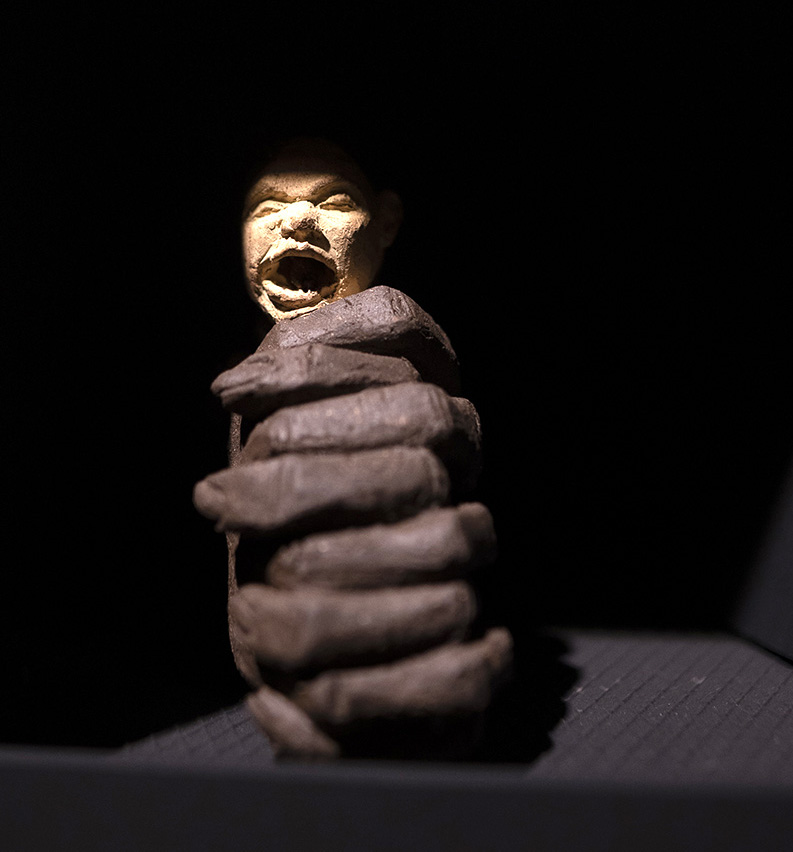
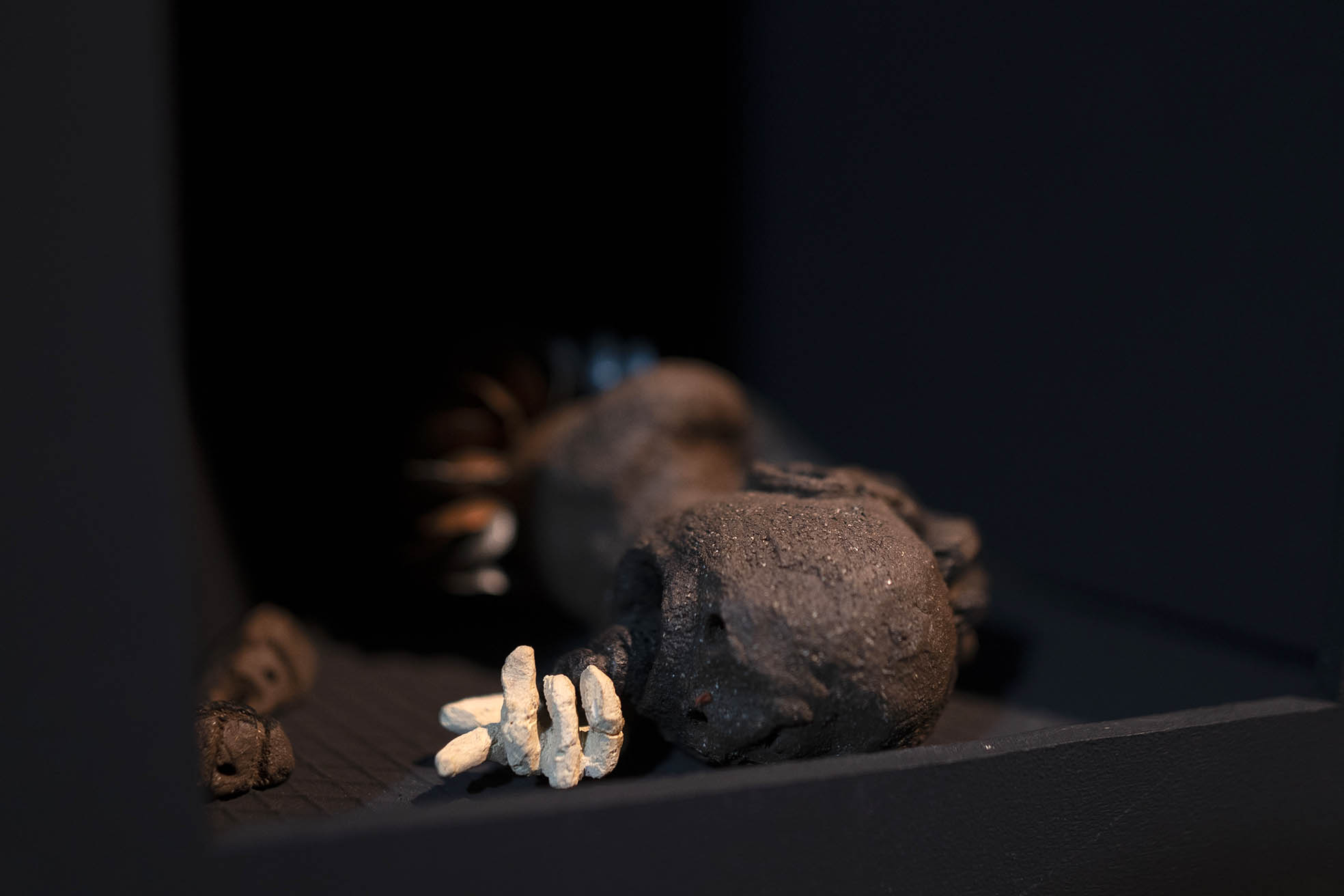
“around the tail it weighs and judges”
installation: wood, ceramics and matrix of copper, zincwith soundscape
155cm x 52,5cm
photos by joão pinto


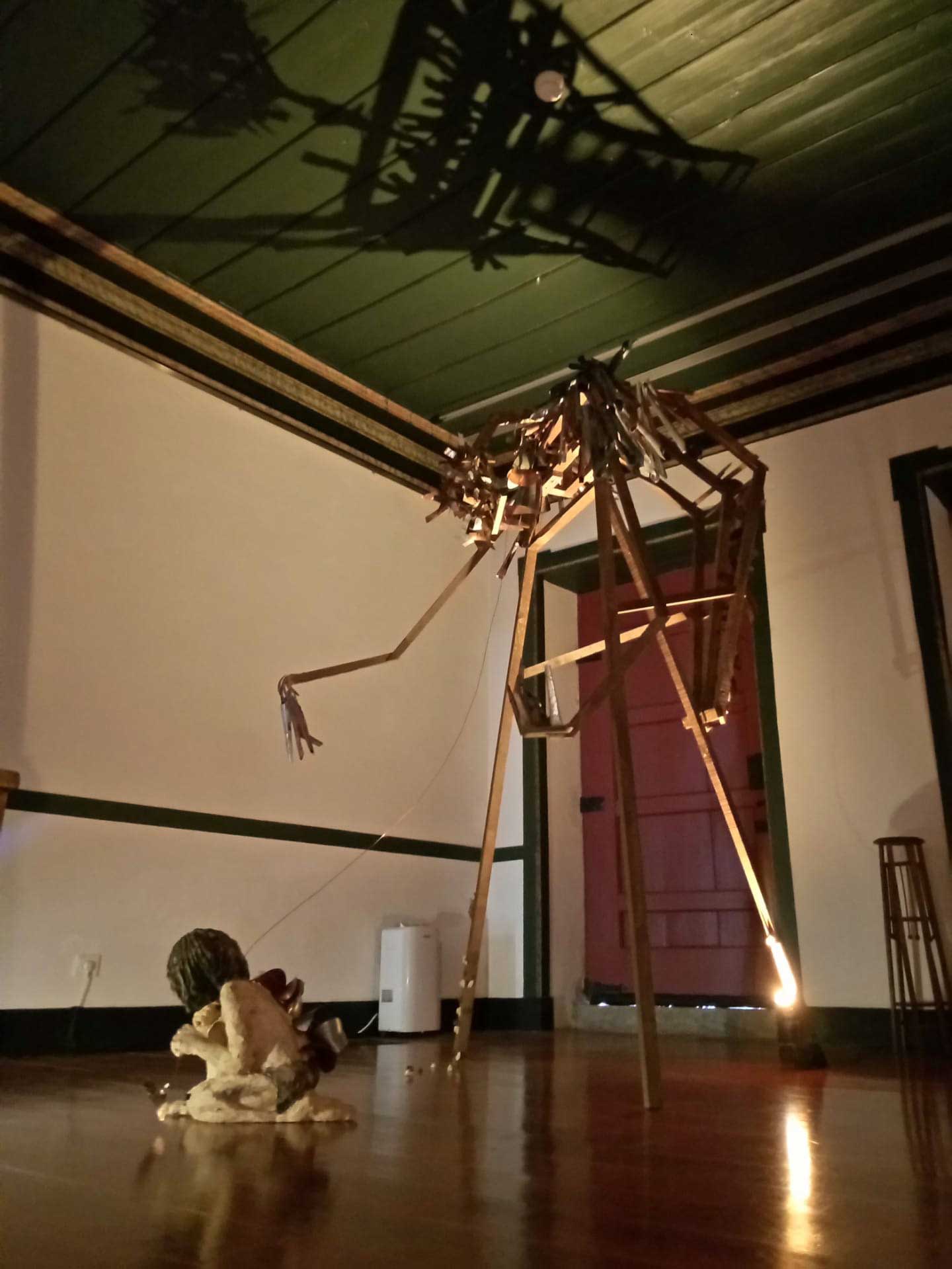

“vexilla regis produent inferni”
installation: wood with copper and zinc etched matrix and ceramicswith soundscape
230cm x 190cm x 110cm
photos by joão pinto and joaquim margarido

"onde a erva murmura"
artist’s book - indian ink and ecoline on a hebrew book
21,5cm x 14cm
What vastness.
We try to follow in their footsteps, but
... a centaur, a wolf, a deer, a hyena, a leopard, a thunder, a wild creek ... dismember them in a frenzy with hands and teeth, together with their dogs, in a moment of contradiction between love for one and love for all.
Love equated us with death.
A certain relationship with otherness was thus ritualized: selecting one's others according to the vital potency that their proximity would intensify; allowing oneself to be affected by these desired others to the point of absorbing them in the body, so that particles of their virtue would integrate the chemistry of mud and promote its refinement.
us, the mud daughters
we see... every calorie of fossil carbon being extracted, at any depth, in any formation of sand, mud or rock, and with all the horrors of taking it to points of distribution and use...
We know of the uses of anger
Hatred is the fury of those who do not share our goals, and its object is death and destruction. Anger is a grief of distortions between peers, and its object is change.
We let ourselves go, and we laugh, we laugh the Medusa’s laughter
That gives us access to native strength; that gives us back our goods, our pleasures, our organs, our immense bodily territories that were kept secret…
We play like the wolf child
...left by Nature to its own instinct. The only goods she knows in the universe are food, rest, and independence.
We let ourselves be guided by making.
The exhibition, “where the grass whispers”, by Ana Torrie builds the set where contemporary civilizational conflicts are presented. Using ceramics, woodcuts, copper and zinc print matrices, and an immersive soundscape generated from the pieces in the installation, symbolic and fabled elements of a Dantesque underworld reveal psychological and social aspects of the times we live in. Ana Torrie’s use of allegory in her work allows her the freedom to create meaning without having to refer directly to the real world, and the relationship between positive and negative, light and shadow, which the expanded language of printmaking provides, allows for a plurality of meanings, and keep intact the tensions and conflicts of the subjects she addresses in this exhibition. Without the tyranny of a definitive meaning, an explicit sociopolitical commentary, or pre-defined ethical lessons, the task of analyzing the self in relation to the surroundings, in search of the art of living on a damaged planet, is placed on us, the public.
Carla Cruz 2020
We try to follow in their footsteps, but
... a centaur, a wolf, a deer, a hyena, a leopard, a thunder, a wild creek ... dismember them in a frenzy with hands and teeth, together with their dogs, in a moment of contradiction between love for one and love for all.
Love equated us with death.
A certain relationship with otherness was thus ritualized: selecting one's others according to the vital potency that their proximity would intensify; allowing oneself to be affected by these desired others to the point of absorbing them in the body, so that particles of their virtue would integrate the chemistry of mud and promote its refinement.
us, the mud daughters
we see... every calorie of fossil carbon being extracted, at any depth, in any formation of sand, mud or rock, and with all the horrors of taking it to points of distribution and use...
We know of the uses of anger
Hatred is the fury of those who do not share our goals, and its object is death and destruction. Anger is a grief of distortions between peers, and its object is change.
We let ourselves go, and we laugh, we laugh the Medusa’s laughter
That gives us access to native strength; that gives us back our goods, our pleasures, our organs, our immense bodily territories that were kept secret…
We play like the wolf child
...left by Nature to its own instinct. The only goods she knows in the universe are food, rest, and independence.
We let ourselves be guided by making.
The exhibition, “where the grass whispers”, by Ana Torrie builds the set where contemporary civilizational conflicts are presented. Using ceramics, woodcuts, copper and zinc print matrices, and an immersive soundscape generated from the pieces in the installation, symbolic and fabled elements of a Dantesque underworld reveal psychological and social aspects of the times we live in. Ana Torrie’s use of allegory in her work allows her the freedom to create meaning without having to refer directly to the real world, and the relationship between positive and negative, light and shadow, which the expanded language of printmaking provides, allows for a plurality of meanings, and keep intact the tensions and conflicts of the subjects she addresses in this exhibition. Without the tyranny of a definitive meaning, an explicit sociopolitical commentary, or pre-defined ethical lessons, the task of analyzing the self in relation to the surroundings, in search of the art of living on a damaged planet, is placed on us, the public.
Carla Cruz 2020
